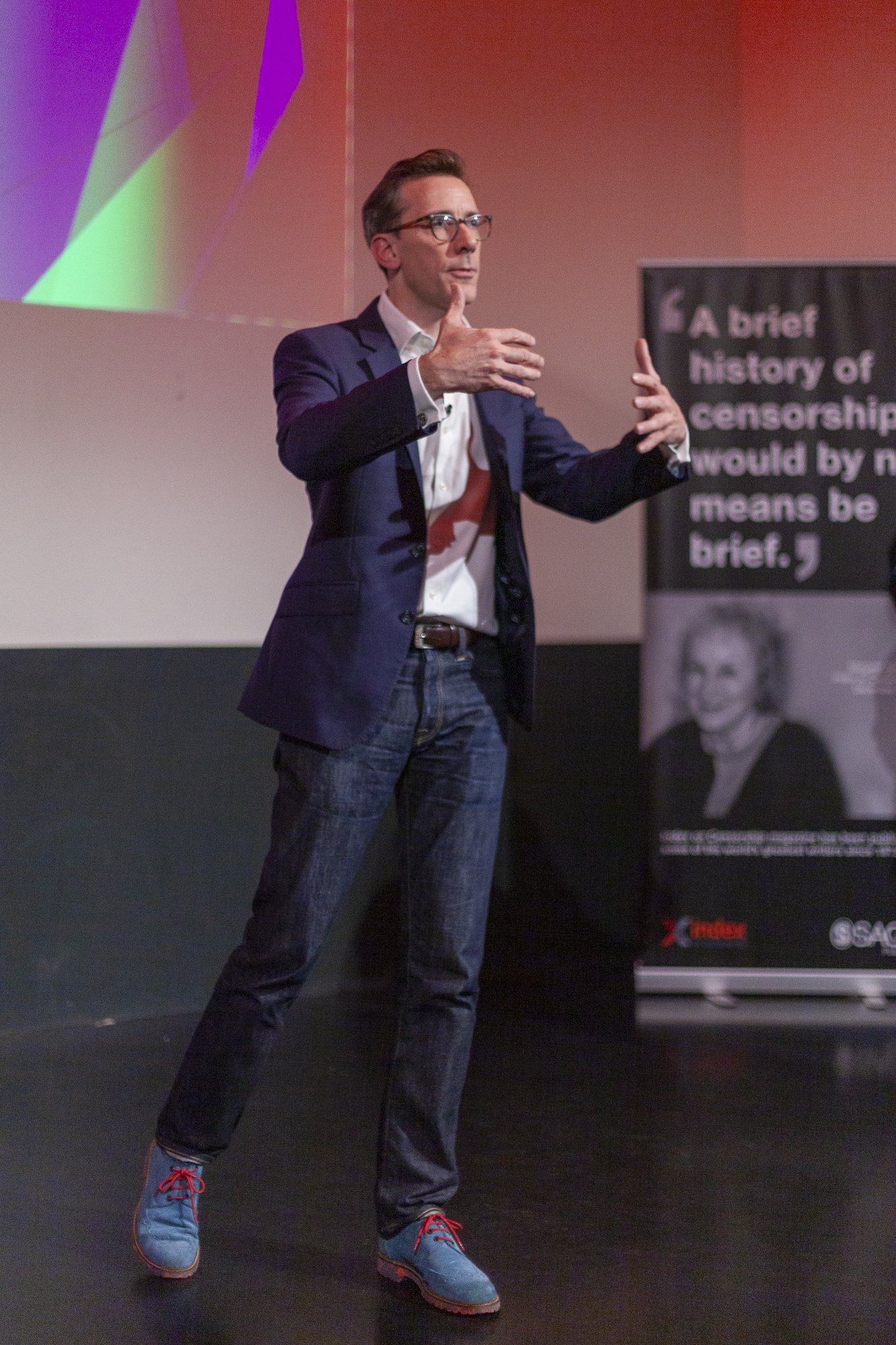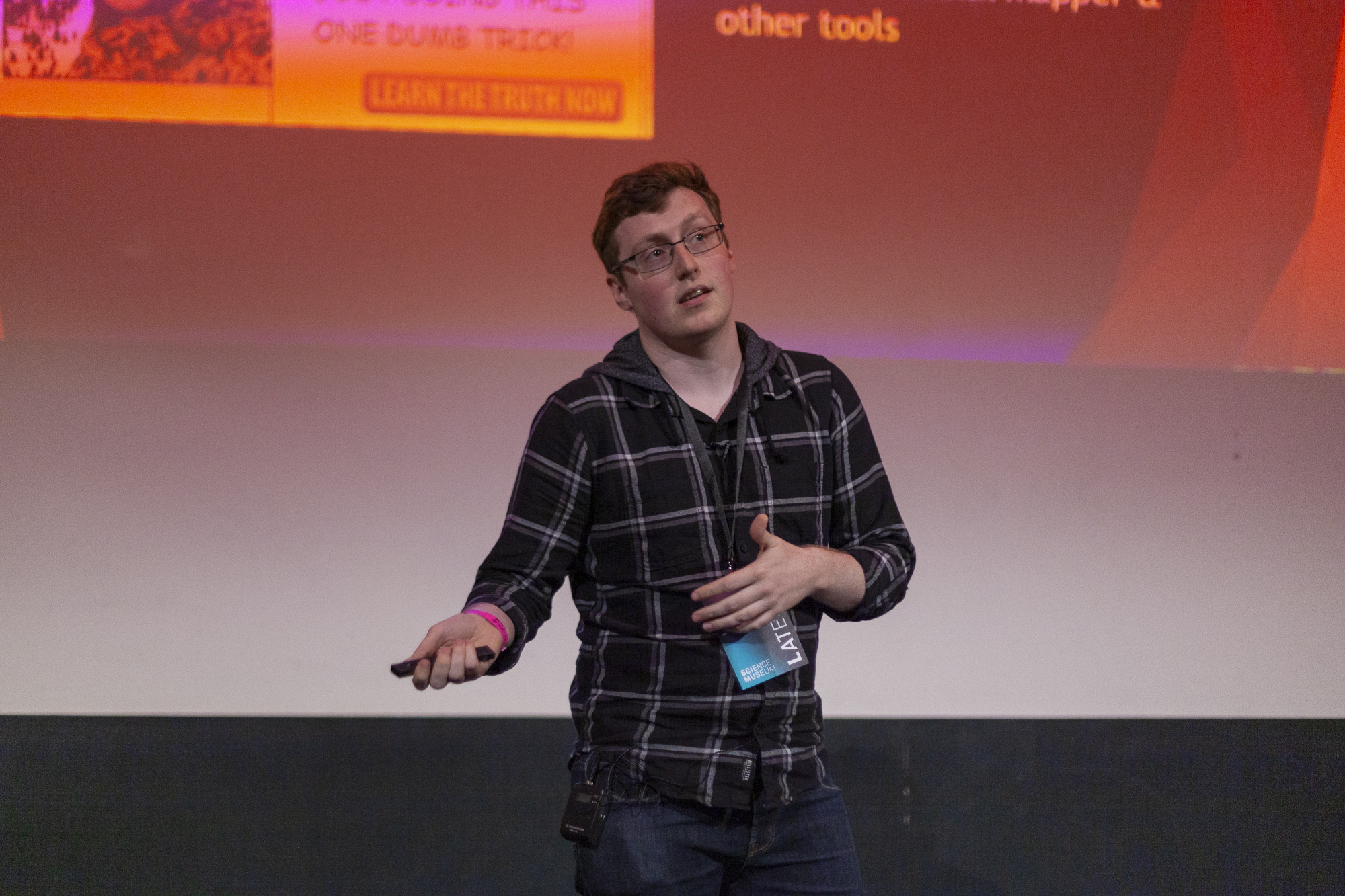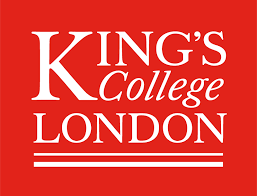21 Apr 2020 | Magazine, News and features, Volume 49.01 Spring 2020
[vc_row][vc_column][vc_custom_heading text=”Keeping our heads down can mean that hard-won rights can easily be lost. Sometimes we choose to stay quiet, but often we are complicit without realising, says Rachael Jolley” google_fonts=”font_family:Libre%20Baskerville%3Aregular%2Citalic%2C700|font_style:400%20italic%3A400%3Aitalic”][vc_single_image image=”113251″ img_size=”full” add_caption=”yes”][/vc_column][/vc_row][vc_row][vc_column][vc_column_text]
“It is easy to part with or give away great privileges, but hard to be gained if once lost,” said Quaker William Penn, who went on to establish the state of Pennsylvania in the USA.
Far more recently, another wise man, former Lord Chief Justice of England and Wales Lord Judge, said: “There are still many countries in the world where what we happily call our rights remain privileges waiting to be won and entrenched.”
These thoughts are the cornerstones of the theme of this issue – the idea that we can give away our rights if we do not stand up for them.
We can be complicit in letting them erode if we feel they are not important enough or let other things take precedence, and many are willing to give away freedom for security.
The Merriam Webster dictionary tells us that the root of the English word “complicit” comes from the Latin word “complicare”, meaning “to fold together”, and that it has evolved over time into meaning helping to do wrong or to commit a crime in some way – in other words, allowing ourselves to be folded into a bad idea.
In allowing ourselves to be complicit, we potentially allow those in power to take away some of our rights forever.
As Lord Judge also points out in his book The Safest Shield, we should be careful never to assume that liberties, rights and justice can be taken for granted.
Complicity is our theme for today because, in 2020, there are multiple powers that like us to give things away – our privacy, our knowledge and even our power to say no. They try to get us to fold into their purpose, to agree it and let them move forward.
It comes at us in many forms.
Many of us are complicit in giving away lots of information about ourselves, such as our contacts and photo albums from our phones. We do this in exchange for free use of software apps – Facebook or Google Maps, for instance.
We do a deal with their owners that they will let us use their stuff, and not charge us, but all along, deep down, we probably guess there is some pay-off.
We know there’s no such thing as a free lunch, so why would there be free email or free software? The answer is: there isn’t. There is a price to pay – you exchange your knowledge and contacts for that which is “free”.
And, as Mark Frary investigates on page 31, taking some decisions – such as being logged in all the time – means you are giving away more than you might imagine.
Frary tracks how much information Google is storing about him and his movements, and realises that it knows 700 places which he has visited in the past six years. That’s a lot of knowledge about him, his movements and where he might be going.
It doesn’t take much imagination to think back to a time when that would be a treasure trove to a government wanting to know more about its citizens because it wanted to prevent them having information, passing it to others and knowing what was going on.
Let’s take the Latin American dictatorships of the 1970s and 1980s, for instance, where journalists and many others were “disappeared” for asking the wrong questions.
What if that kind of information had been available to those governments? What extra power would it have given them to track down dissenters and to send in the police?
Shift forward in time to Venezuela today, from where Stefano Pozzebon reports for us on why the media and activists feel afraid. Threats and imprisonment are being used by the authoritarians in charge of this troubled nation to silence those who disagree with them.
And that government could try to access individuals’ whereabouts from Google Maps simply by putting in a request to Google. The company doesn’t always hand over information to governments which request it, but many times it does. Imagine for a moment what that might feel like.
Pozzebon said: “For those who don’t want to join the almost five million Venezuelans who have already left, not saying anything about anything becomes the only way to cope.”
When we are afraid we are most at risk from the pressure that others might place on us not to speak out or criticise. We can be complicit in attempts by the powerful to change society and remove those rights that Penn set out.
Of course, acting out of fear is understandable. It is easy for those far away who are not risking their lives, or those of their families, to say: “Oh you must do this, or stand up for that.” It is not so easy to do that once you know what, and whom, you put at risk.
This desire to quiet your anger and put it away until a less dangerous time is something that most humans can understand.
[/vc_column_text][/vc_column][/vc_row][vc_row][vc_column width=”1/4″][vc_icon icon_fontawesome=”fas fa-quote-left” size=”xl”][/vc_column][vc_column width=”3/4″][vc_custom_heading text=”The petition said she demanded the imprisonment of scholars who had signed a ‘Peace Petition’. The thing was, she didn’t” google_fonts=”font_family:Libre%20Baskerville%3Aregular%2Citalic%2C700|font_style:400%20italic%3A400%3Aitalic”][/vc_column][/vc_row][vc_row][vc_column][vc_column_text]
That’s why Kaya Genç’s article from Turkey is so important. In it he describes the moment that changed one academic’s attitude dramatically. The name of Anıl Özgüç, a professor of medicine at Istanbul’s Aydın University, was added to a pro-government petition without her knowledge. The petition said she demanded the imprisonment of scholars who had signed a “Peace Petition”. The thing was, she didn’t.
And by that action, her attitude – which had been to keep quiet and hope for the best – changed.
She had reached her tipping point and she was no longer prepared to shut up: it was a step too far to take her name from her. Like John Procter in The Crucible, giving up her name was too much.
Suddenly she put aside her fears and spoke up. She is now an open critic of the government’s attempts to restrict academic freedom.
This chimes with new research from Jennifer Pan, at Stanford University, who looks at repression in authoritarian countries. Her research found that arrests of outspoken activists in Saudi Arabia had the effect of silencing the individuals but, surprisingly, did not deter others from speaking out. In fact, it motivated more people to criticise the government and the monarchy, and stepped up calls for change.
So while outsiders might expect the opposite to be true – that people would be cowed – Pan’s research shows that there is a tipping point and it can prompt more outspoken calls for change.
Complicity is not an easy topic. We should all be able to see there are sometimes reasons for not challenging the powerful, and times when it would be understandable to feel afraid or at risk.
Many around the world take that responsibility very seriously, and choose to make brave choices – even when it might put them in danger. It is these people whom Index often profiles, and we are in awe of those who can be incredibly brave when the odds are stacked against them.
Complicity is a challenge for us constantly, and in small and large ways we will be confronted by it all our lives. The question is: what is our response?
[/vc_column_text][/vc_column][/vc_row][vc_row][vc_column][vc_column_text]
The piece is part of the 2020 spring issue of Index on Censorship magazine. Buy a copy or subscribe here.
[/vc_column_text][/vc_column][/vc_row][vc_row][vc_column width=”1/3″][vc_custom_heading text=”Why and when we chose to censor ourselves and give away our privacy” google_fonts=”font_family:Libre%20Baskerville%3Aregular%2Citalic%2C700|font_style:400%20italic%3A400%3Aitalic”][vc_column_text]The spring 2020 Index on Censorship magazine looks at how we are sometimes complicit in our own censorship[/vc_column_text][/vc_column][vc_column width=”1/3″][vc_single_image image=”112723″][/vc_column][vc_column width=”1/3″][vc_custom_heading text=”Subscribe” google_fonts=”font_family:Libre%20Baskerville%3Aregular%2Citalic%2C700|font_style:400%20italic%3A400%3Aitalic”][vc_column_text]In print, online. In your mailbox, on your iPad.
Subscription options from £18 or just £1.49 in the App Store for a digital issue.
Every subscriber helps support Index on Censorship’s projects around the world.
 SUBSCRIBE NOW[/vc_column_text][/vc_column][/vc_row]
SUBSCRIBE NOW[/vc_column_text][/vc_column][/vc_row]
13 Dec 2019 | Events
[vc_row][vc_column width=”1/2″][vc_single_image image=”110991″ img_size=”full”][/vc_column][vc_column width=”1/2″][vc_column_text]Shake off the post New Year blues with drinks, snacks and debate at Index on Censorship’s winter magazine launch on the theme of macho leaders and their attempts to silence freedom of expression, on Wednesday 15 January at Google HQ.
Speakers include Xiaolu Guo, Chinese novelist, essayist, screenwriter, film-maker and author of the bestselling A Concise Chinese-English Dictionary for Lovers; Dora Papp, a Hungarian activist, who helped elect the new opposition mayor of Budapest; Lindsey Hilsum, Channel 4 News international editor and author of In Extremis: The Life and Death of the War Correspondent Marie Colvin, the story of the most daring war reporter of her time; and Rob Sears, author of the hit humour titles The Beautiful Poetry of Donald Trump and Vladimir Putin: Life Coach. The panel will discuss the ways macho male leaders around the world stifle dissent, debate and democracy, and the success stories of those who speak out against them. Chaired by Index on Censorship Editor-in-Chief Rachael Jolley.[/vc_column_text][/vc_column][/vc_row][vc_row][vc_column][vc_row_inner][vc_column_inner width=”1/4″][vc_single_image image=”110914″ img_size=”full” add_caption=”yes”][/vc_column_inner][vc_column_inner width=”1/4″][vc_single_image image=”110992″ img_size=”full” add_caption=”yes”][/vc_column_inner][vc_column_inner width=”1/4″][vc_single_image image=”110993″ img_size=”full” add_caption=”yes”][/vc_column_inner][vc_column_inner width=”1/4″][vc_single_image image=”111370″ img_size=”large” add_caption=”yes”][/vc_column_inner][/vc_row_inner][vc_column_text]
When: 15 January 2020, 18:00 to 21:00
Where: Google, Six Pancras Square, London N1C 4AG
Tickets: Free, advance booking essential.
[/vc_column_text][/vc_column][/vc_row]
26 Sep 2019 | Event Reports, News and features, Volume 48.02 Summer 2019 Extras, Volume 48.03 Autumn 2019
[vc_row][vc_column][vc_column_text]

Tech journalist Geoff White (Photo: Sean Gallagher / Index on Censorship)
“Put your hand up if you’re concerned at the moment about facial recognition”, Geoff White, investigative technology journalist, told the audience at the launch of the latest issue of Index on Censorship magazine. “Keep your hands up if you own a smartphone”, was White’s next instruction to the majority of the audience. “Good news. You’re already using facial recognition!”
The autumn issue of the magazine, on the theme of borders, investigates how border forces around the world are increasingly clamping down on the free movement of ideas. The worrying and growing trend of travellers’ social media accounts being checked as they enter a country was a particular focus of the magazine. Contributors questioned whether people would begin to self-censor their online presence for fear of their views being held against them at airport security. This could pose particular dangers to LGBT travellers travelling through countries with repressive laws.
The launch was part of the Science Museum’s September’s late event, which takes place monthly. The theme of the night was Top Secret, and Index on Censorship shared the venue with talks about cracking codes and personal security. White was joined on stage by Jacob Wilkin, a penetration tester. Their talk was introduced by Rachael Jolley, editor of Index on Censorship magazine.
White highlighted the issues around the increasingly widespread use of facial recognition technology: the data that can be attached to the image of a face. Different stashes of data, bank and tax records for example, each have a unique number attached to them. He said: “But to really have power in this new world of data you need to get all the stashes together.” This requires one number that unites them all. “And guess what, we’ve had it along. It’s literally written on your face.” Facial recognition technology reduces an image of a face to a set of numbers and letters.
This comes into play at the world’s borders. International airports, including LAX and Gatwick Airport are employing facial recognition technology. The Transport Security Administration in the US have scanned 19,000,000 people to detect imposters. They detected 100. Is it worth collecting the data of so many to catch so few?
White said: “Think about the number of stashes of data that your face connects to. Your Facebook profile, your LinkedIn profile, your Twitter profile, your driver’s license, your passport, and increasingly every cctv camera you walk past.” Britain is second only to China for proliferation of CCTV cameras.

Network penetration specialist Jacob Wilkin (Photo: Sean Gallagher / Index on Censorship)
Wilkin demonstrated how easily computer programmes can find these social media accounts with minimal information. Wilkin describes himself as “a hacker for the good guys”, testing for flaws in the security of corporations and banks. He has created a facial recognition programme called Social Mapper.
Social Mapper correlates people’s social media profiles based on an image and a name that is fed into it. Days before the launch, Jodie Ginsburg, CEO of Index on Censorship, volunteered a photo of herself to Wilkin to run through his programme. Her Linkedin, Twitter and Facebook profiles promptly appeared on the wall behind Wilkin. “This took two minutes” he said. “If you run this over multiple days with multiple machines, you can collect all the Linkedin data for a whole organisation.”
“What are the border implications of this?” Wilkin asked. He has spoken at an event for US Department of Homeland Security, who are looking at “scraping social media profiles as people come into the country. They want to find links to drugs, smuggling, terrorism.”
Catching people who pose a threat to the safety of others is doubtless a good thing. But should it come at the price of the violation of the privacy of the general public? Social media provides platforms where people are free to air political views, and exhibit aspects of their lives, including sexual orientation. When crossing borders into countries where freedom of expression is limited and dissenters are punished, will knowing that this information is being instantaneously collected impact on how people use their right to freedom of expression online? [/vc_column_text][vc_basic_grid post_type=”post” max_items=”4″ element_width=”6″ grid_id=”vc_gid:1569514532933-51b65a69-4c09-0″][/vc_column][/vc_row]
16 May 2019 | Event Reports, News and features
[vc_row][vc_column][vc_single_image image=”106836″ img_size=”full” add_caption=”yes”][vc_column_text]“The truth is so dangerous,” Tania Branigan said.
Branigan, foreign leader writer for the Guardian and its former China correspondent, was speaking about the endemic self-censorship prevalent in China, where even parents who were involved in the 1989 Tiananmen Square protests won’t tell their own children about their experiences.
The silence, the lack of a reckoning around the events of 1989 has become even more absolute with the repackaging of communist party rule, added Jeff Wasserstrom, a professor of history at the University of California, who specialises in China.
The student-led protests bloomed after the death of pro-reform communist leader Hu Yaobang in April 1989. The officially-sanctioned mourning period provided an opening for people to express their anxieties about the direction of the country, Wasserstrom said. Officials reacted with a mixture of conciliatory and hardline tactics that revealed a split with the communist party leadership. Ultimately, the hardliners won out, with the country’s paramount leader at the time, Deng Xiaoping, and his allies resolving to use force to suppress the movement. Up to 300,000 troops mobilised under a martial law order implemented on 20 May.
On 4 June, the troops were ordered into central Beijing, killing both demonstrators and bystanders in the process. Estimates of the death toll vary from several hundred to thousands.[/vc_column_text][vc_single_image image=”106837″ img_size=”full” add_caption=”yes”][vc_column_text]“We all cried when the first news came in,” said Chinese author Xinran, who was working at a radio station at the time. In the months after the massacre, she said, there were secret police everywhere and the threat that even the smallest comment about the suppression would be investigated.
Today, Branigan said, under the country’s president, Xi Jingping, the past has become even more sensitive. “Eye-watering amounts are spent not on addressing grievances, although the party does do that to some extent, but simply on policing the expression of them.”
She outlined how she thought the Chinese government has enforced self-censorship on its own citizens and the wider world. First China has forced social media platforms to hire and pay for huge numbers of staffers. Secondly automatic monitoring mechanisms like its new system of social credit enforces silence for fear that people will not be able to fully participate economically because of something they or their family have said on social media. Thirdly, China is also exporting its censorship by threatening to cut off large corporations, Hollywood studios and academic journals from its vast markets.
Wasserstrom agreed, saying that, there had been a “tipping point” at which it became dangerous to even mark the anniversary of the Tiananmen massacre in private, which hadn’t been the case before.
“Around the world in 1989, people wanted more choices in their life,” Wasserstrom said. In China, young people wanted to listen to the music that their peers in other countries were listening to; people in eastern Europe wanted to be able to buy things in stores that they knew people in western Europe could. But what’s happened since then, he added, is that people have gained material choices but not political ones.
“Control is hard. It’s expensive. It takes a lot of work. Liberty isn’t the only thing that requires eternal vigilance it turns out,” Branigan said.
Additional reporting by Summer Dosch.[/vc_column_text][vc_single_image image=”106838″ img_size=”full” add_caption=”yes”][vc_column_text]Thank you to King’s College London for hosting the Index on Censorship magazine panel.
 [/vc_column_text][/vc_column][/vc_row]
[/vc_column_text][/vc_column][/vc_row]
![]() SUBSCRIBE NOW[/vc_column_text][/vc_column][/vc_row]
SUBSCRIBE NOW[/vc_column_text][/vc_column][/vc_row]


